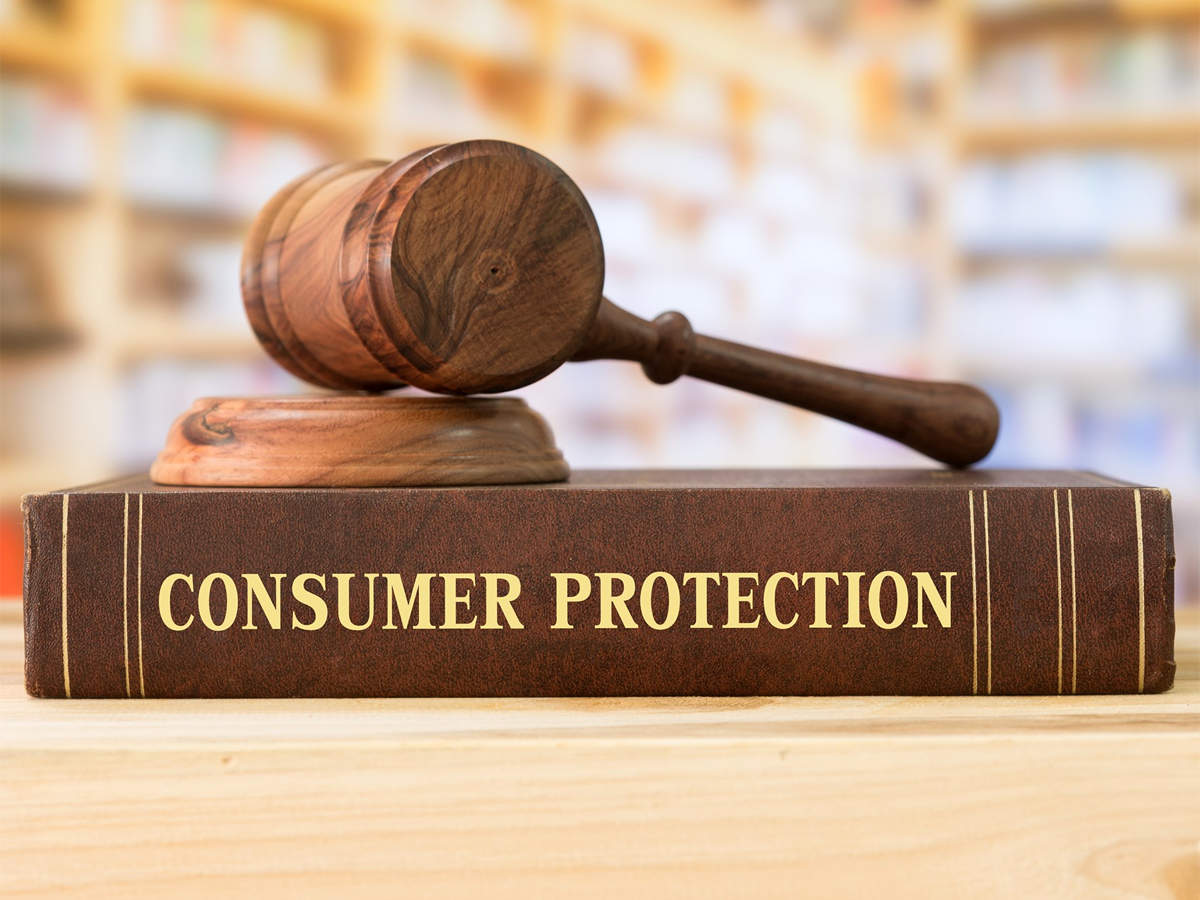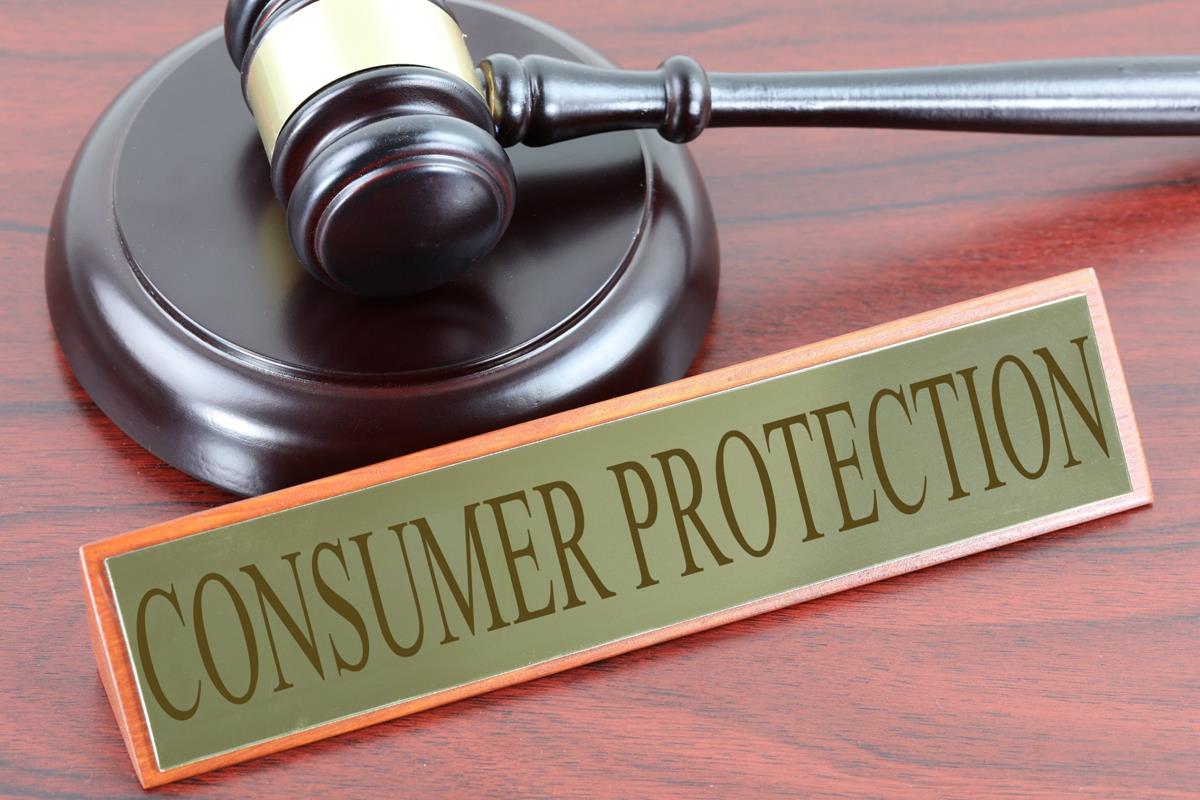Understanding Consumer Protection Laws
Learn about the importance of complying with consumer protection laws, tips for ensuring compliance, and the role of consumers in promoting fair and ethical business practices. Stay up-to-date with changes in regulations to maintain a positive brand reputation and avoid legal liabilities.
Author:K. N.Jun 16, 20226.7K Shares450K Views

Consumer protectionlawsexist to protect individuals from fraudulent, unfair, or deceptive business practices. These laws provide consumers with rights and remedies in case of injury, fraud, or other harm caused by businesses.
As a business owner or marketer, understanding consumer protection laws is essential to ensuring that your marketing practices are ethical, legal, and responsible.
What Is Consumer Protection?
Consumer protection refers to a set of laws and regulations that protect consumers from businesses that engage in unfair or deceptive practices. Consumer protection laws aim to ensure that businesses do not mislead or deceive consumers, engage in false advertising, or sell unsafe products.
These laws provide consumers with the right to take legal action against businesses that engage in these practices, as well as remedies such as refunds or compensation for damages.
Marketers and business owners can ensure compliance with consumer protection laws by following these best practicesoutlined by Marx Communications.
Types Of Consumer Protection Laws
There are many types of consumer protection laws, including:
False Advertising Laws
False advertisinglaws prohibit businesses from making false or misleading claims about their products or services. These laws require businesses to substantiate any claims they make in their advertising materials, and to avoid using deceptive or unfair advertising practices.
Product Liability Laws
Product liability laws impose legal responsibilities on manufacturers and sellers for the safety and quality of their products.
These laws require businesses to ensure that their products are safe for consumers to use, and to provide warnings about any potential hazards or risks associated with their products.
Consumer Fraud Laws
Consumer fraud laws prohibit businesses from engaging in fraudulent or deceptive practices that harm consumers. These laws require businesses to provide accurate and truthful information to consumers, and to avoid making false or misleading statements about their products or services.
Privacy Laws
Privacy laws regulate the collection, use, and disclosure of personal information. These laws require businesses to obtain consent from consumers before collecting their personal information, and to protect this information from unauthorized access or disclosure.
Importance Of Consumer Protection Laws For Marketers
Consumer protection laws have important implications for marketers, as they define the legal and ethical boundaries of marketing practices. By understanding these laws, marketers can ensure that their marketing efforts are truthful, transparent, and fair, and avoid legal liabilities or damage to their brand reputation.
Compliance with consumer protection laws also promotes consumer trust and confidence in a business. When consumers know that a business is committed to ethical and responsible marketing practices, they are more likely to feel comfortable doing business with that company.
Tips For Ensuring Compliance With Consumer Protection Laws
Compliance with consumer protection laws can be challenging, especially for businesses that operate in multiple jurisdictions with different regulations. However, there are several tips that marketers can follow to ensure compliance with these laws:
Stay Up-to-date With Changes In Regulations
Consumer protection laws are constantly evolving, and it is important for marketers to stay informed about changes in these laws. This can be done by regularly monitoring legal newsand updates, and consulting with legal professionals who specialize in consumer protection.
Be Transparent In Marketing Communications
Transparency is key to complying with consumer protection laws. Marketers should provide clear and accurate information about their products or services, and avoid making false or misleading claims. Any disclaimers or limitations on product claims should be clearly disclosed to consumers.
Obtain Consent For Data Collection And Use
Data privacy laws require businesses to obtain consent from consumers before collecting their personal information. Marketers should ensure that they have a legal basis for collecting and using consumer data, and obtain explicit consent from consumers before collecting any sensitive data.
Train Employees On Consumer Protection Laws
All employees who are involved in marketing or sales should be trained on consumer protection laws to ensure that they understand the legal and ethical boundaries of marketing practices.
This can help prevent accidental violations of these laws and promote a culture of compliance within the organization.
Enforcement Of Consumer Protection Laws
Penalties for violating consumer protection laws can be severe, including fines, injunctions, and even criminal charges in some cases. Additionally, businesses that violate these laws may face damage to their brand reputation and loss of consumer trust.
Global Consumer Protection Laws
Consumer protection laws exist in many countries around the world, and there are also international agreements and conventions that aim to promote consumer protection on a global scale. For example, the United Nations Guidelines for Consumer Protection provide a framework for countries to develop and enforce consumer protection laws.
International businesses must be aware of the consumer protection laws in each country in which they operate, as well as any international agreements or conventions that apply to their business. Failure to comply with these laws can result in legal penalties and damage to their brand reputation.
The Role Of Consumers In Consumer Protection
Consumers also play an important role in promoting consumer protection. By being aware of their rights and taking action against businesses that engage in fraudulent or deceptive practices, consumers can help promote fair and ethical business practices.
Consumers can file complaints with government agencies, such as the FTC or the Competition Bureau, or take legal action against businesses that violate consumer protection laws. Additionally, consumers can use their purchasing power to support businesses that are committed to ethical and responsible marketing practices.
People Also Ask
What Are The Consumer Protection Laws In Us?
The United States has several federal and state laws that aim to protect consumers from fraudulent and deceptive practices by businesses. Some of the most well-known consumer protection laws in the US include the Federal Trade Commission Act, the Fair Credit Reporting Act, the Consumer Product Safety Act, and the Truth in Lending Act.
What Is Consumer Protection Laws?
Consumer protection refers to the set of laws, policies, and practices that aim to protect consumers from fraudulent and deceptive practices by businesses.
These laws are designed to promote fair and ethical business practices, protect consumers from harm, and ensure that consumers have access to accurate and transparent information about products and services.
What Is An Example Of Consumer Protection?
An example of consumer protection is a law that requires businesses to provide clear and accurate information about the ingredients and nutritional content of food products. This law helps consumers make informed decisions about the products they purchase and ensures that businesses do not engage in deceptive advertising practices.
Another example is a law that requires car manufacturers to provide safety features and perform safety tests to ensure that their products are safe for consumers to use. This law protects consumers from harm and promotes responsible business practices.
Conclusion
Consumer protection laws are essential for promoting fair and ethical business practices and protecting consumers from fraudulent or deceptive practices.
As a marketer or business owner, it is important to understand and comply with these laws to ensure that your marketing practices are ethical, legal, and responsible.
Staying up-to-date with changes in regulations, being transparent in marketing communications, obtaining consent for data collection and use, and training employees on consumer protection laws are some of the best practices for ensuring compliance with these laws.
Jump to
What Is Consumer Protection?
Types Of Consumer Protection Laws
Importance Of Consumer Protection Laws For Marketers
Tips For Ensuring Compliance With Consumer Protection Laws
Enforcement Of Consumer Protection Laws
Global Consumer Protection Laws
The Role Of Consumers In Consumer Protection
People Also Ask
Conclusion

K. N.
Author
Latest Articles
Popular Articles
